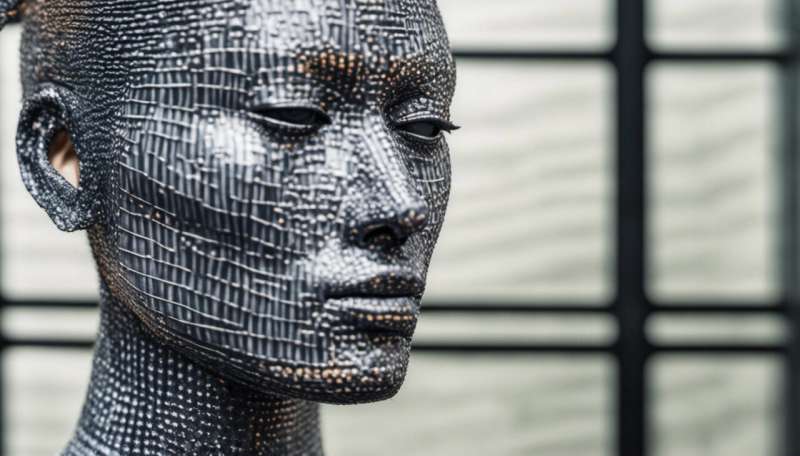New study shows real-time stress reaction to racism

A new study by researchers from the University of Nebraska–Lincoln and University of Texas at Austin provides more evidence that the stress of racism contributes to health problems among people of color.
Published Monday by the Proceedings of the National Academy of Sciences, the study employed wearable sensors and daily surveys to measure college students' stress response to instances of race-based micro-aggression; when they ruminated upon racism; or when they were vicariously exposed to racism.
The researchers found elevated stress responses in the sympathetic nervous system among African-American and Latinx students when they personally experienced racism. Latinx youth also had elevated stress responses when they thought deeply about racial injustice. African immigrant students had elevated stress responses when they witnessed racism. Latinx students also experienced negative emotions when they witnessed racism, but their physical reaction came in the form of a suppressed sympathetic nervous response.
"When people experience an incident of racism, their bodies respond to that as a stressor," said Bridget Goosby, a University of Texas sociology professor who co-led the study while at Nebraska. "This is the initial physiological response that is the beginning of a cascade of symptoms in the body. That continual cascade can lead to wear and tear on the body and to health conditions we see prominently in the African-American community and in some cases the Latinx community."
Previous studies based largely on self-reporting have found connections between exposure to racism and chronic ailments such as obesity, high blood pressure, diabetes and heart disease, many of which occur disproportionately among minority groups.
"Our findings build on previous research and add to it by showing how racism affects the body's stress process in real time in the real world," Goosby said.
The Nebraska study appears to be one of the first to confirm the stress reaction when it happens. It involved 100 racially diverse students—31 African-American, 24 Latinx, 25 international students from Africa, and 30 students from refugee communities, primarily Sudanese. For two weeks in fall 2016 and another week in spring 2017, they wore wristbands that measured electrical characteristics of their skin, a marker for sympathetic nervous system activity. They were also sent text messages each morning and each evening providing links to surveys where participants reported stress-triggering events.
The combination allowed the researchers to map participants' physical reactions to racist experiences throughout the day.
The researchers believe Latinx students' suppressed reactions to witnessing racism possibly reflected fatigue to the intense political rhetoric of the time.
Findings were mixed with refugee students and international students. The African students showed arousal when they deeply thought about racism, perhaps reflecting that they didn't recognize discrimination until they thought about it later. Refugee students were less likely to report negative emotion and race-related stress in general, possibly because their membership in a close-knit, highly cohesive community was protective.
More information: Jacob E. Cheadle et al. Race and ethnic variation in college students' allostatic regulation of racism-related stress, Proceedings of the National Academy of Sciences (2020). DOI: 10.1073/pnas.1922025117
Journal information: Proceedings of the National Academy of Sciences
Provided by University of Nebraska-Lincoln


















